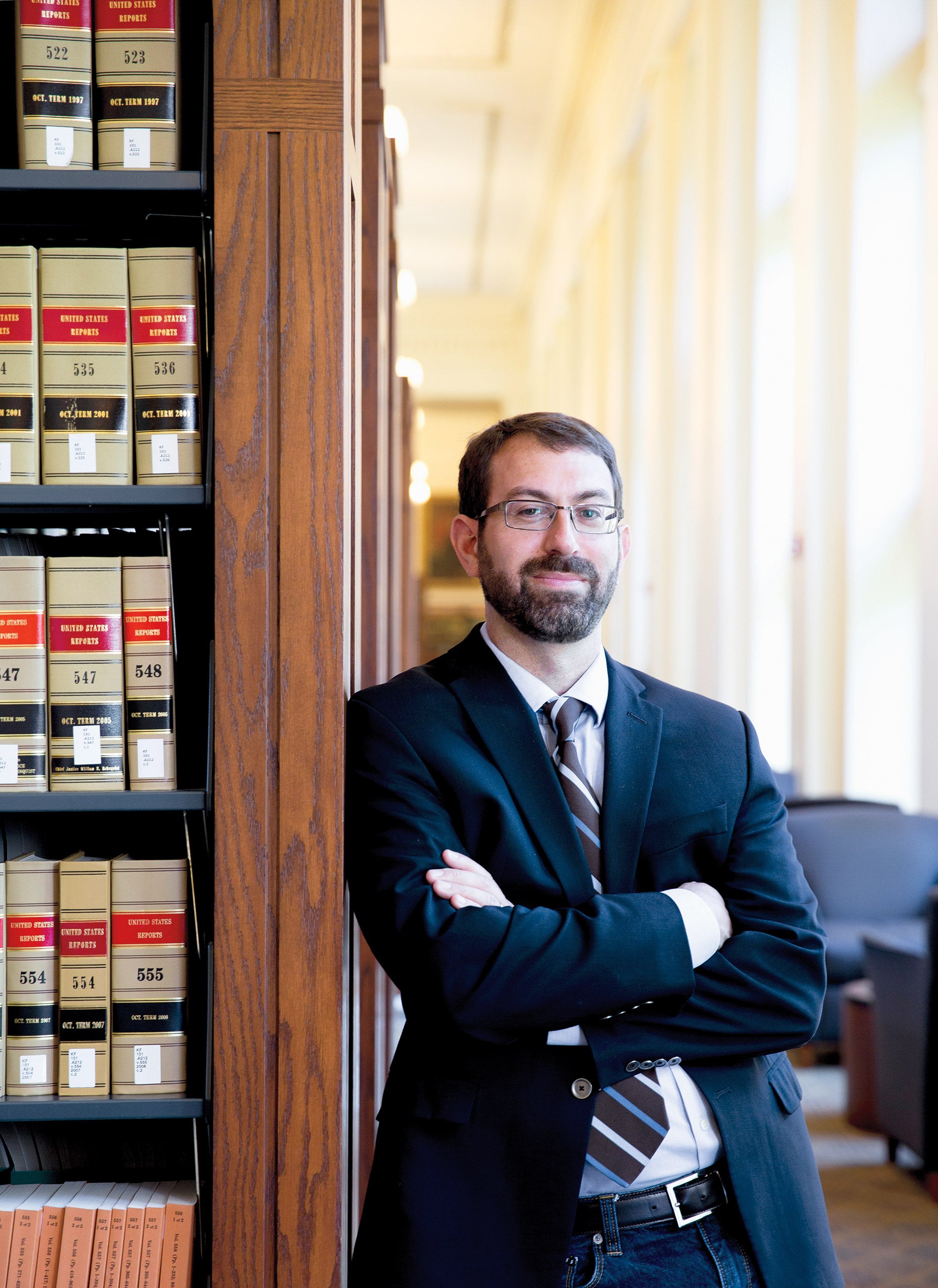Harvard Law Professor Samuel Moyn ’01, who is also professor of history at Harvard University, is one of the world’s leading scholars in the emerging field of the history of human rights. In an interview for the Bulletin, Moyn discussed the potential and the limitations of the human rights movement when it comes to creating just societies.
Q: What does history tell us about when the struggle for human rights can hinder progress toward a just society?
A: I am a fan of human rights, but I want to know why humanity came so late to them, and why they have made agonizingly little difference in world affairs so far. They have improved moral consciousness on a number of fronts. Next to no one will say they accept torture today even when they conduct it in secret. But human rights movements as we know them haven’t done well in redefining opinion when it comes to every area. For example, our international economic life has remained much more immune to serious moral criticism. And when it comes to some problems, like domestic economic inequality, human rights may not offer the right framework for deciding whether it’s wrong and for mobilizing to change things if it is. In sum, I’m interested in how human rights have so far emerged as a relatively weak tool—good for some jobs but not others.
You have written about how the focus on human rights in the second half of the 20th century coincided with a lack of emphasis on duty. What is the effect of emphasizing rights over duties?
The United Nations canonized human rights in a universal declaration in 1948, establishing a template for a new 20th-century ideal of social citizenship. And when we look back, it turns out that people in the aftermath of World War II cared much more about duties to their fellow citizens than basic rights for people abroad—about encouraging people to do their bit for the common good, including by organizing the economy for collective purposes, establishing legal regimes from antitrust to workmen’s compensation in that spirit, and setting (and paying) high taxes. The 1940s, after all, were the age of the construction of new welfare states. Yet human rights have only become world-famous since the 1970s—the very era when the welfarist agenda entered crisis. The possibility emerges that human rights symbolize our commitment to global solidarity, but in a form that is weak and cheap, while welfare states enacted solidarity that, although local, was strong and expensive. I worry that if we celebrate human rights uncritically, we might miss how they have been linked to the globalization but also to the weakening of solidarity—not only the expansion but also the withering of duties.
What role does international law play now and what role could it play in moving people or nations back toward duties?
We are just at the beginning of exploring different ways that international law might serve to correct wrongs. The initial steps that the human rights movement has taken to civilize the globe in the last 40 years are simply the first indications of a worldwide regulatory scheme. The trouble is that the rise of that movement has coincided with the creation of legal structures largely focused, both at home and abroad, on institutionalizing market freedom, rather than imposing local or global obligations to match our well-deserved rights. Instead of adopting a default libertarianism, our welfare state ancestors embraced the need for more coercive governmental intervention, and their thinking remains a valuable fund for the future of international law. The same remains true in the domain of war and peace, where international law’s potential is barely exploited today.
Your most recent book, “Christian Human Rights,” grew out of your book “The Last Utopia: Human Rights in History.” In what direction is your scholarship moving now?
My current project is to write the sequel to “The Last Utopia”—among other things, taking the history of human rights through the present, by concentrating on social rights and distributive justice: how human rights transformed from an ideology of the welfare state to one addressing global destitution. Beyond this, I am toying with some work on the history of the attempt to regulate war, focused on how international law moved from the aspiration to control force among states to the aspiration to keep it humane in counterterrorism. I see this as an ambiguous development, as I have recently explored in a piece in The New York Times on America’s so-called “forever war.” Morality rightly demands more humane war, but it is easier for humane war to become normalized.
What are the benefits for today’s law students in studying the history of human rights?
The use of history is to show how our current assumptions required argument and struggle, and so are open to change in the future. Students can learn to put their own desire for reform in context—not to give it up, but to learn where it came from. And also how it might change: A space had to be opened for human rights activism and law, and there is space to transform them now.
